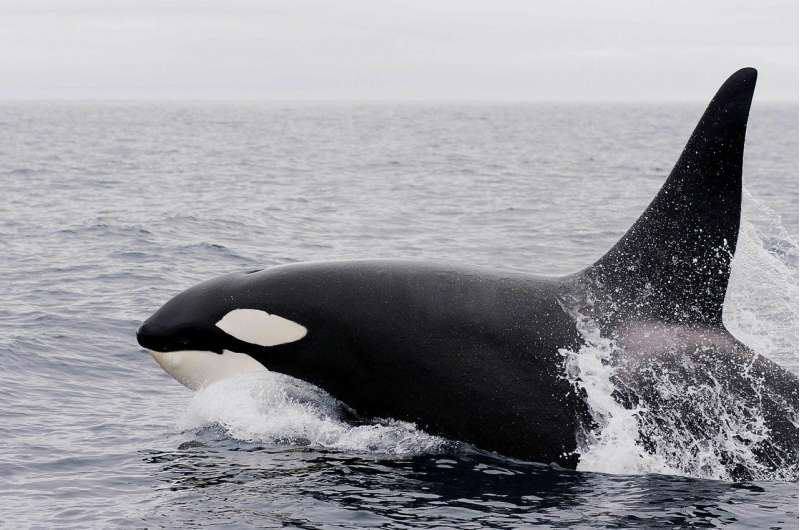Feds could restrict Pacific Ocean fishing over endangered orcas, NOAA letter says

SEATTLE—The National Oceanic and Atmospheric Administration (NOAA) is taking a fresh look at whether new fishing restrictions are needed to help prevent the extinction of endangered southern resident killer whales that frequent Puget Sound.
New evidence of the fish the whales depend on and the risk posed to orcas by depleted prey has caused the agency to write a letter of guidance to the Pacific Fishery Management Council, indicating the agency is examining whether new restrictions are needed—particularly on fisheries in the lower Columbia and Sacramento rivers and on fall-run chinook salmon in the Klamath River.
The council is one of eight regional entities across the nation that sets fishing seasons off the coasts of Washington, Oregon and California on a wide variety of species, including salmon.
The agency in 2009 concluded fisheries did not jeopardize the survival and recovery of killer whales.
But since 2009, "a substantial amount of new information is available on SRKW and their prey," NOAA Regional Administrator Barry Thom wrote to Phil Anderson, chairman of the council, on Wednesday.
Therefore, the agency is going to initiate a new look at fisheries regulated by the council this year.
That process is intended to result in fishing that lessens the impact on prey targeted by the whales. Possibilities include restrictions in time and places when fishermen and whales most intersect, or season closures.
Lack of prey is one of the biggest threats to the southern resident killer whales. Shortages particularly of chinook throughout the whales' vast migratory range make all of their other problems, including vessel noise and pollution, worse.
Over the past decade, the southern resident population has declined from 87 whales to a historical low of 74, and future projections under status quo conditions suggest a continued decline over the next 50 years, the agency stated in its letter, and the whales are at high risk for extinction.
"Chinook salmon, the whales' primary prey, are important to SRKW (southern resident killer whale) survival and recovery. Any activities that affect the abundance of Chinook salmon available to SRKW have the potential to impact the survival and population growth of the whales," Thom wrote.
"Fisheries can reduce the prey available to the whales and in some cases can interfere directly with their feeding. Insufficient prey can impact their energetics (causing them to search more for fewer prey), health (decreasing their body condition), and reproduction (reducing fecundity and calf survival)."
The agency would "like to work with the Council to reassess the effects of Council fisheries on SRKW in light of this new information and as needed to develop a long-term approach that ensures these fisheries appropriately limit any adverse effects on southern resident killer whales," Thom wrote.
Thom wrote that the agency anticipates developing a "long-term approach" and doesn't expect changes for 2019 fisheries.
However, the agency wants work to get underway as soon as possible, Thom stated.
Killer whales are protected under the federal Endangered Species Act. Under the act, actions that jeopardize the survival of protected species are illegal.
©2019 The Seattle Times
Distributed by Tribune Content Agency, LLC.



















